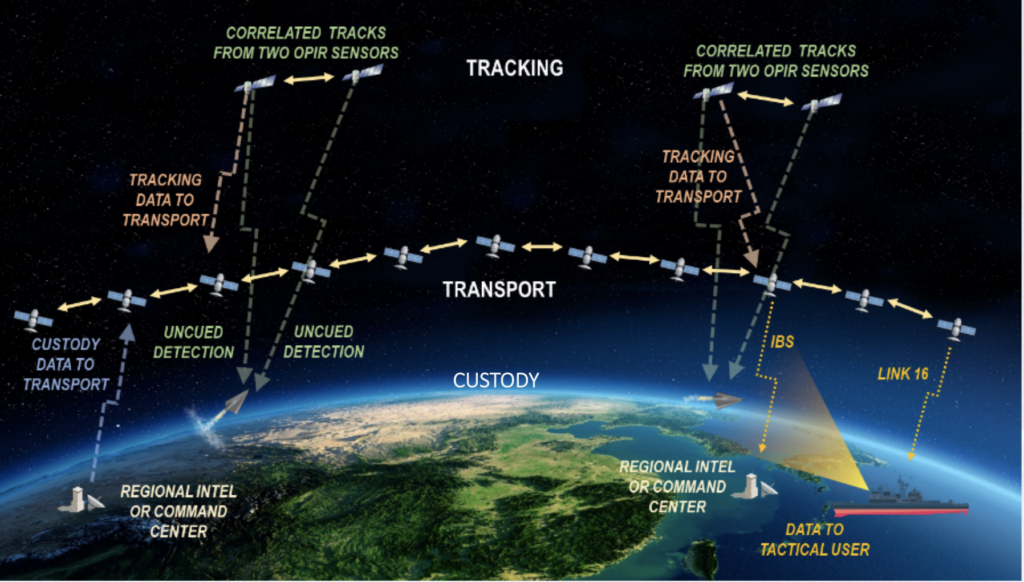The Space Development Agency expects Tranche 1 satellites to cost “significantly less” than the $14 million average price it paid for Tranche 0 satellites.
WASHINGTON — The Pentagon’s Space Development Agency will solicit bids for an upcoming procurement of up to 150 satellites to be launched in late 2024, agency director Derek Tournear said March 4.
A request for proposals will be issued in August and multiple contracts could be awarded before the end of the year, Tournear said at a Potomac Officers Club virtual conference.
The SDA is building a fleet of satellites in low Earth orbit that includes a Transport Layer of data-relay satellites and a Tracking Layer of sensor satellites to detect and track missiles. The agency last year ordered 20 transport satellites from Lockheed Martin and York Space Systems; and eight tracking satellites from L3Harris and SpaceX.
The initial 28 satellites — known as Tranche 0 — will be launched in late 2022. The next procurement of 150 satellites — or Tranche 1 — will launch in late 2024. This will expand the coverage and “provide some real persistence over a given region,” Tournear said.
The specifics of the Tranche 1 procurement — such as what sensors and capabilities these satellites will have — are still being hashed out, Tournear said. SDA officials on March 31 are scheduled to meet with military leaders “to essentially decide what the minimum viable product is for Tranche 1,” he said.
SDA’s primary goal is to provide satellite-based services to military organizations and deployed forces as soon as possible. In that vein, it plans to buy satellite buses and payloads that vendors are already producing rather than develop satellites on spec.
Vendors will be asked to submit fixed-price bids for the Tranche 1 satellites. Tournear said SDA’s contracting approach seeks to take advantage of economies of scale as vendors will charge less per satellite if they get a large order. Tournear said the content of the bids will determine how many vendors will be selected.
Tournear noted that the average price for the 20 transport satellites in Tranche 0 was $14.1 million apiece. He expects the unit price to be even lower in Tranche 1. The SDA asked potential vendors for projected pricing, he said. “When we go into production mode of hundreds of satellites [it will be] significantly less than $14.1 million average price.”
“What’s driving this is the commoditization of these components and the commoditization of the way we’re doing business,” Tournear said. “What SDA is trying to do is create a market where we want to have the cadence on the order of one satellite a week. And we’re going to be launching several times a year.”
Tournear said SDA wants the industry to invest in technologies for SDA programs with the incentive that there will be frequent procurements. The agency does not want to be in a “vendor lock” situation where it’s dependent on one or two suppliers. Satellites from all vendors have to be interoperable and be able to exchange data through laser or radio communications links.
